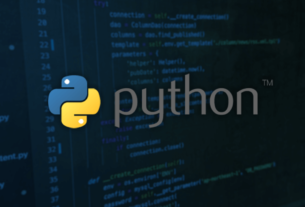Question or problem about Python programming:
I have a Python script that needs to execute an external program, but for some reason fails.
If I have the following script:
import os;
os.system("C:\\Temp\\a b c\\Notepad.exe");
raw_input();
Then it fails with the following error:
If I escape the program with quotes:
import os;
os.system('"C:\\Temp\\a b c\\Notepad.exe"');
raw_input();
Then it works. However, if I add a parameter, it stops working again:
import os;
os.system('"C:\\Temp\\a b c\\Notepad.exe" "C:\\test.txt"');
raw_input();
What is the right way to execute a program and wait for it to complete? I do not need to read output from it, as it is a visual program that does a job and then just exits, but I need to wait for it to complete.
Also note, moving the program to a non-spaced path is not an option either.
This does not work either:
import os;
os.system("'C:\\Temp\\a b c\\Notepad.exe'");
raw_input();
Note the swapped single/double quotes.
With or without a parameter to Notepad here, it fails with the error message
How to solve the problem:
Solution 1:
subprocess.call will avoid problems with having to deal with quoting conventions of various shells. It accepts a list, rather than a string, so arguments are more easily delimited. i.e.
import subprocess subprocess.call(['C:\\Temp\\a b c\\Notepad.exe', 'C:\\test.txt'])
Solution 2:
Here’s a different way of doing it.
If you’re using Windows the following acts like double-clicking the file in Explorer, or giving the file name as an argument to the DOS “start” command: the file is opened with whatever application (if any) its extension is associated with.
filepath = 'textfile.txt' import os os.startfile(filepath)
Example:
import os
os.startfile('textfile.txt')
This will open textfile.txt with Notepad if Notepad is associated with .txt files.
Solution 3:
The outermost quotes are consumed by Python itself, and the Windows shell doesn’t see it. As mentioned above, Windows only understands double-quotes.
Python will convert forward-slashed to backslashes on Windows, so you can use
os.system('"C://Temp/a b c/Notepad.exe"')
The ‘ is consumed by Python, which then passes “C://Temp/a b c/Notepad.exe” (as a Windows path, no double-backslashes needed) to CMD.EXE
Solution 4:
At least in Windows 7 and Python 3.1, os.system in Windows wants the command line double-quoted if there are spaces in path to the command. For example:
TheCommand = '\"\"C:\\Temp\\a b c\\Notepad.exe\"\"' os.system(TheCommand)
A real-world example that was stumping me was cloning a drive in VirtualBox. The subprocess.call solution above didn’t work because of some access rights issue, but when I double-quoted the command, os.system became happy:
TheCommand = '\"\"C:\\Program Files\\Sun\\VirtualBox\\VBoxManage.exe\" ' \
+ ' clonehd \"' + OrigFile + '\" \"' + NewFile + '\"\"'
os.system(TheCommand)
Solution 5:
import win32api # if active state python is installed or install pywin32 package seperately
try: win32api.WinExec('NOTEPAD.exe') # Works seamlessly
except: pass


